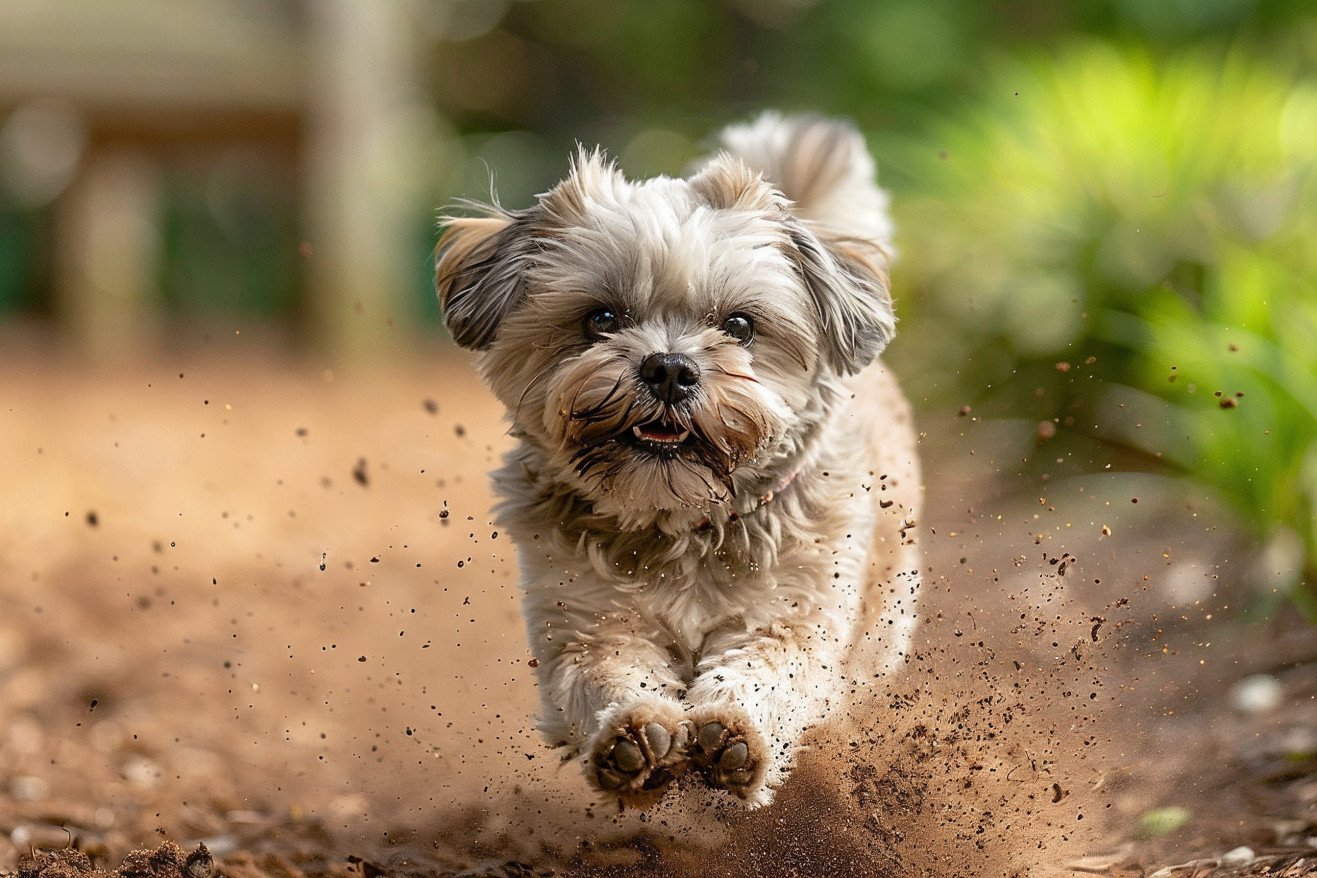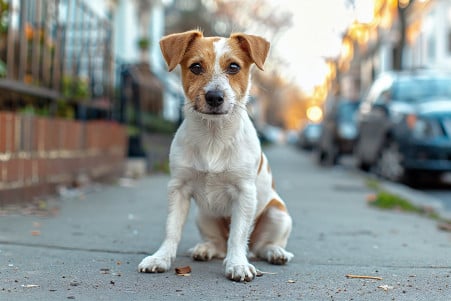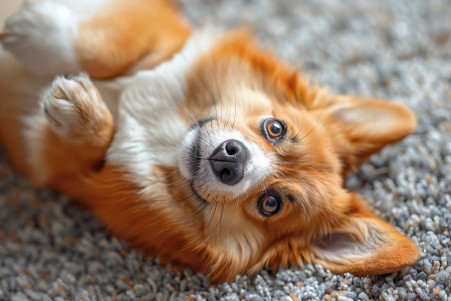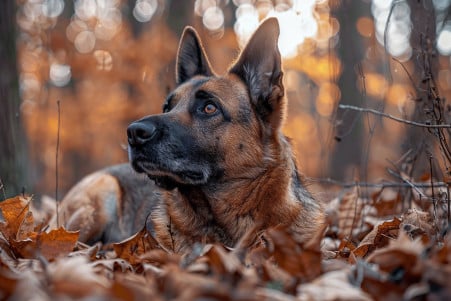Why Do Dogs Kick After Pooping? Science Explained
6 May 2024 • Updated 6 May 2024

If you're a dog owner, you've probably seen your furry friend kick after pooping, but what exactly is the reason behind this odd behavior? Dogs are known to kick or scrape the ground with their back legs after they poop. This "scratching" is an ancestral behavior that dogs used to cover their scent by kicking dirt, leaves or grass over their feces. This way, they could hide their location from predators in the wild.
To learn more about this strange but useful dog behavior, let's take a look at what animal behaviorists and veterinarians have discovered in their research. They've found that there are a number of natural instincts that drive this behavior and even some ways that it's relevant to dogs today. By the end, you'll have a better understanding of why dogs kick after pooping and what this age-old habit means.
Why do dogs kick after they poop?
What Research Says About Scent Marking and Communication
The kicking that dogs do after pooping isn’t just a funny quirk - it’s a way to communicate with other dogs. Dogs have scent glands in their paws and anal regions, and when they kick the ground, they release pheromones from these glands, according to PetMD, which dogs use to mark their territory and tell other dogs about themselves, including their sex, age, and health.
In addition to the chemical signals from the pheromones, the physical act of kicking creates visual markings on the ground, further signaling a dog's presence, as noted in a study published in Applied Animal Behaviour Science. Several studies have shown that dogs are more likely to kick the ground after pooping in areas they consider their territory and when they encounter other dogs, according to New Hampshire Public Radio.
The intensity of the kicking may also be a way to show a dog’s place in the social hierarchy. A study by Bekoff in 1979 found that higher-ranking dogs kicked the ground more vigorously, suggesting that the behavior may be a way to show dominance. By learning about the biological reasons for this instinctive behavior, we can gain a better understanding of the complex ways dogs communicate.
Breed, Age, and Gender Differences in Kicking Behavior
Some dog breeds may be more likely to engage in more intense ground scratching due to their natural instincts. For instance, a study by The Spruce Pets showed that certain breeds, including Terriers, are more likely to kick more often or more vigorously.
The American Kennel Club also suggested that older dogs and dogs with more territorial experience may be more likely to kick after defecating, perhaps because they have a stronger urge to mark their territory as they get older.
Meanwhile, multiple studies have shown that male dogs are more likely to kick after defecating than female dogs, possibly due to hormonal differences. Research published in the Journal of Mammalogy found that while a similar percentage of male and female dogs kick after defecating, males did so much more frequently.
Environmental factors, including the number of dogs in a household, can also impact the frequency and intensity of a dog's ground scratching, according to an article on AskVet. The presence of other dogs may lead to more vigorous territorial marking.
Although the reasons for these differences in kicking behavior aren't entirely clear, the studies indicate that a dog's breed, age, sex, and environment can all have an impact. This information can help dog owners better understand and address their pet's natural post-poop behaviors.
How to Deal With Excessive or Problematic Kicking
While kicking after pooping is a normal dog behavior, excessive or aggressive kicking can lead to problems in some cases. For example, according to DogTime, if your dog kicks too hard, they can damage lawns, gardens, or even indoor flooring, which can lead to costly repairs and even injury to the dog's paws.
In addition, according to an article on Tuff Pets, excessive kicking can be a sign of an underlying health condition, such as joint issues or nerve problems. Therefore, pet parents should keep an eye on their dog's behavior and talk to a vet if they notice any muscle spasms that seem out of the ordinary or that don't go away.
If you're dealing with excessive kicking, training methods, such as positive reinforcement and redirection, can be used to help control the behavior and prevent potential problems, according to PetsRadar. By dealing with problematic kicking, pet parents can help their dogs continue to enjoy this natural behavior while minimizing any negative side effects.
How to Deal With and Clean Up After Kicking
While allowing dogs to kick is generally a good idea, especially if they are doing it on grass or dirt, it's important to be prepared to clean up any messes that may result from the behavior. This may mean having pet-safe wet wipes on hand, as BeChewy suggests, as well as poop scoopers, rakes, and a proper place to dispose of the waste.
If your dog is kicking on a hard surface, you may be able to stop the behavior by distracting your dog with a treat or toy immediately after they go to the bathroom, according to commenters on Ask MetaFilter. You can also help prevent messes and damage by creating a specific area for your dog to go to the bathroom, such as a mulched or gravel area, says The Farmer's Dog.
With a little management and some good cleanup practices, dog owners can let their pets do what comes naturally while keeping the potential downsides to a minimum.
Conclusion: Understanding and Managing a Natural Canine Behavior
The post-defecation kicking behavior in dogs is a deeply rooted instinct that dates back to their wild ancestors. While the behavior may seem peculiar to humans, it serves important purposes for dogs, such as scent marking and communication. Understanding the evolutionary roots and biological mechanisms behind this behavior can help pet owners appreciate its significance.
With proper management and cleanup strategies, owners can allow their dogs to engage in this natural ritual while minimizing any potential issues. Embracing this quirky canine habit is part of respecting and accommodating a dog's innate instincts and needs.


